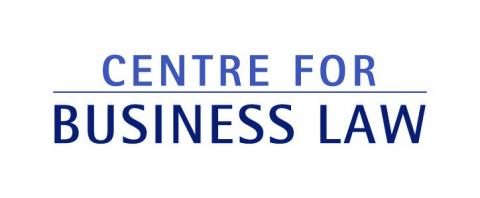Request for Participating Organizations Brochure (PDF)
Academic Composition
The Externship is composed of 7 credits in total. 5 credits are allocated to the clinical component (Law 379) and 2 credits are allocated to the academic component (Law 380).
Law 379: Externship (5 Credits)
A clinical component in which students spend 16 hours per week (two working days) for 12 weeks working in the legal department of a participating organization.
Law 380: Externship Reflection (2 Credits)
An academic component designed to promote reflective practice, enhance experiential learning gained through Law 379, and ensure a significant academic component to students' learning. The course content will focus on specific topics relevant to in-house practice.
Program Support
Participating organizations and students will receive ongoing support from the Allard School of Law over the course of the term. Karim Amlani is the Adjunct Professor for the Corporate Counsel Externship, as well as a Senior Director of Legal at Hootsuite.
Requirements for Participating Organizations
Participating organizations will be required to appoint a member of the legal team to act as principal to the student. The principal will be responsible for ensuring that the student is instructed on the practice of law and professional conduct and for mentoring the student throughout the Externship period.
The principal will be asked to:
- identify tasks and activities appropriate for an upper year J.D. student that would allow
- the student to gain experience within a certain competency area;
- meet with the student regularly to provide guidance and direction;
- monitor and track the student’s performance; and
- provide the student with feedback about his/her work product and progress.
The Clinic Adjunct will be in regular contact with the principal throughout the term to discuss the student’s performance and to support the principal’s efforts under the program. To assist the Clinic Adjunct with the academic evaluation of each student under the program, principals will be asked to submit a non-graded evaluation of the student’s performance at the end of the term.
The participating organization is asked to keep in mind that these are unpaid placements and as such, the primary objective of the Externship is to provide students with hands-on training in various areas of in-house counsel practice. Participating organizations are discouraged from only assigning students non-legal or purely administrative tasks such as filing, data entry, mail delivery or answering phones (unless those tasks relate to legal practice management).
Participating organizations, in cooperation with the Clinic Adjunct, will also develop an appropriate research project for each student, which the student can work on during the term. The purpose of the research project include allowing the student to delve more deeply into a particular topic relevant to the Externship experience; providing some useful research for the participating organization; and ensuring the student has a project to focus on during any unscheduled time during the Externship.
Learning Outcomes
Those who practice as in-house counsel know that their practice is unlike that of lawyers at a typical law firm. In-house counsel are more than just a legal advisor to their organization. While the exact role of in-house counsel varies depending on the individual relationships formed between counsel and the senior management team of their organization, generally speaking, in-house counsel are trusted advisors in areas that usually extend beyond strictly legal matters. They affect the full range of their organization’s decisions. While in-house counsel may historically have functioned primarily as conduits between the organization and outside law firms, with the rising cost of legal services and the trend for many organizations to expand their in-house legal departments, the role of in-house counsel has shifted significantly, with in-house counsel handling more and more legal matters in-house.
Unless the organization is large and has a large in-house counsel department, most in-house counsel do not specialize in a single practice area; instead, they practice in many areas, including mergers & acquisitions, competition law, securities, tax, real estate, procurement, ethics, privacy, intellectual property, in addition to the standard contracts, addressing employment law issues and overseeing litigation.
In-house counsel are also responsible for carrying out non-legal duties particularly as they gain seniority in an organization. Those non-legal duties include strategic planning, corporate governance, risk management, legal education of management and employees, working with outside suppliers such as auditors, managing outside legal fees, directing outside counsel, setting the tone for ethical culture and overall general leadership. Increasingly, in-house counsel are seen as leaders of their organization, with the ability to influence decision making and guide the overall direction of the organization.
A key objective of the Externship is to give the student exposure to the variety, depth, and complexity of in-house counsel practice, and allow the student to become aware of the types of legal and business issues that normally confront an in-house practitioner. To achieve this objective, the participating organization is encouraged to expose the student to a variety of legal practice areas and non-legal functions of the organization in order to gain relevant skills.
Participating organizations may consider involving the student in an investigation, litigation or transaction due diligence, allowing the student to job shadow a typical day for in-house counsel, allowing the student to spend a day with a sales rep or to observe a manufacturing line, asking the student to make a presentation to executive/management (i.e. training in a legal area such as CASL or privacy), or assigning the student to a project.
At the conclusion of the Externship, the student should understand: the ethical obligations of in-house counsel and professional responsibility, how in-house counsel practice varies from a typical law firm practice (including the advantages and disadvantages of an in-house counsel practice), the legal and non-legal functions of an in-house counsel, to whom in-house counsel owe a duty of loyalty and confidentiality, and generally, the practical, hands-on nature of in-house work.
Contact Information
